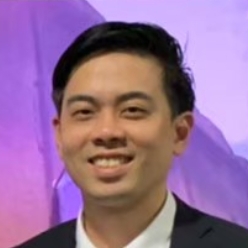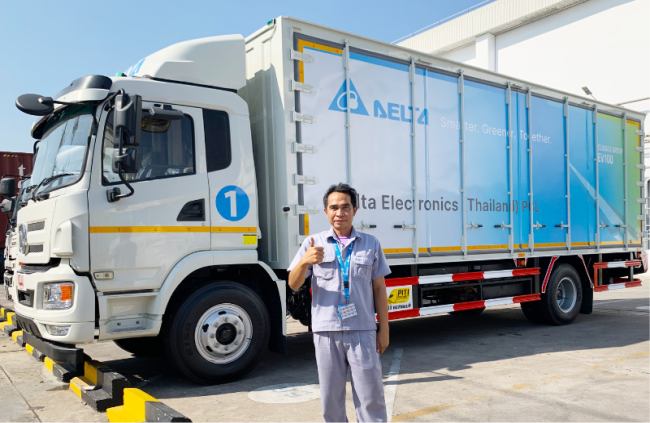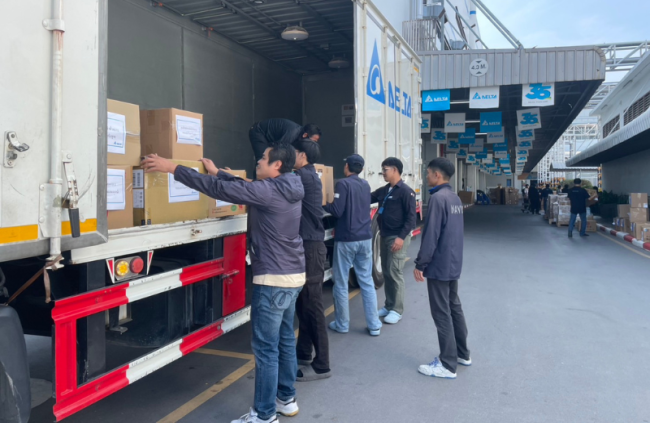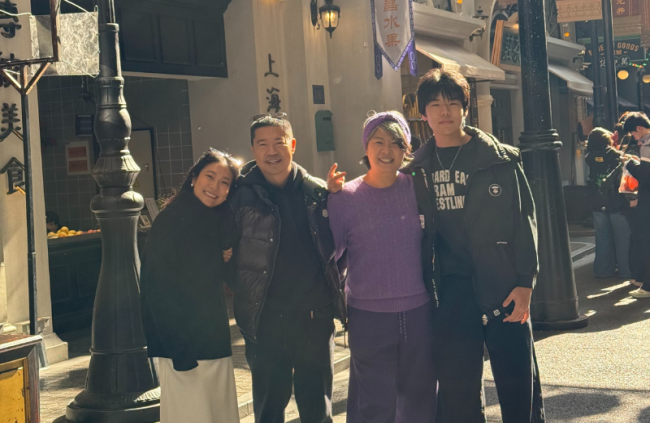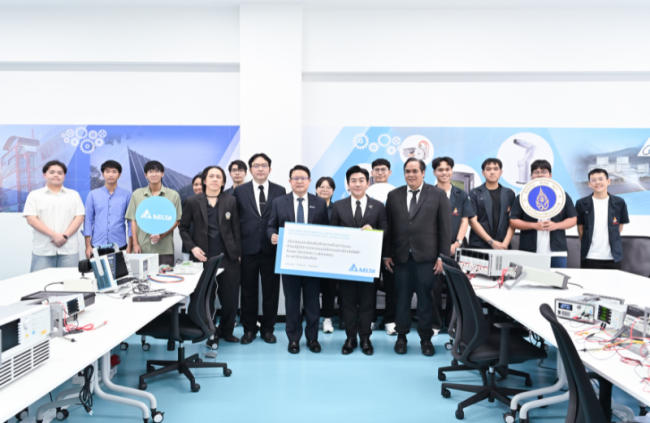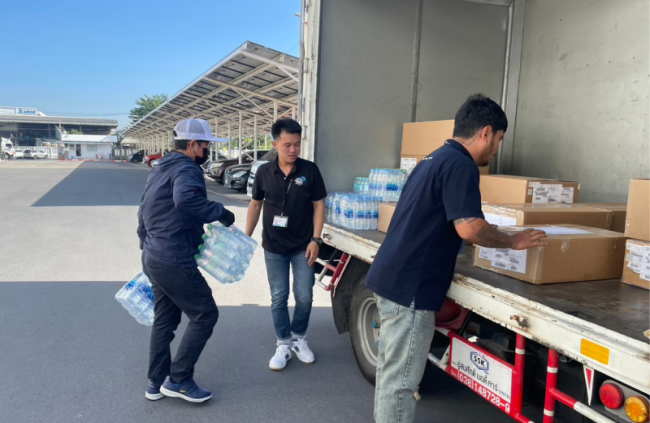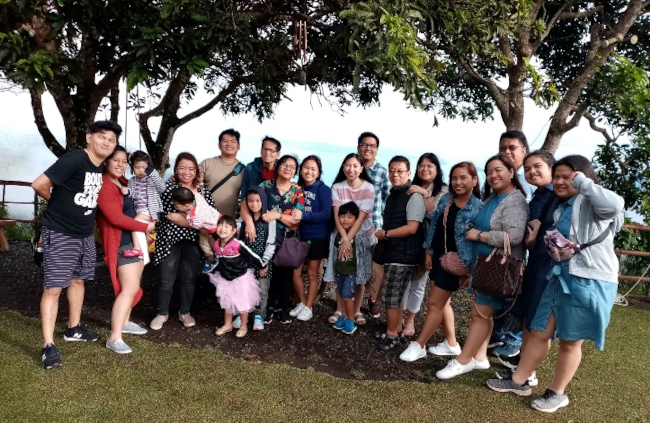Be the Captain of Your Own Destiny: DET President’s Candid Views on a Life of Decisive Action
By David Nakayama - Published January 02, 2020
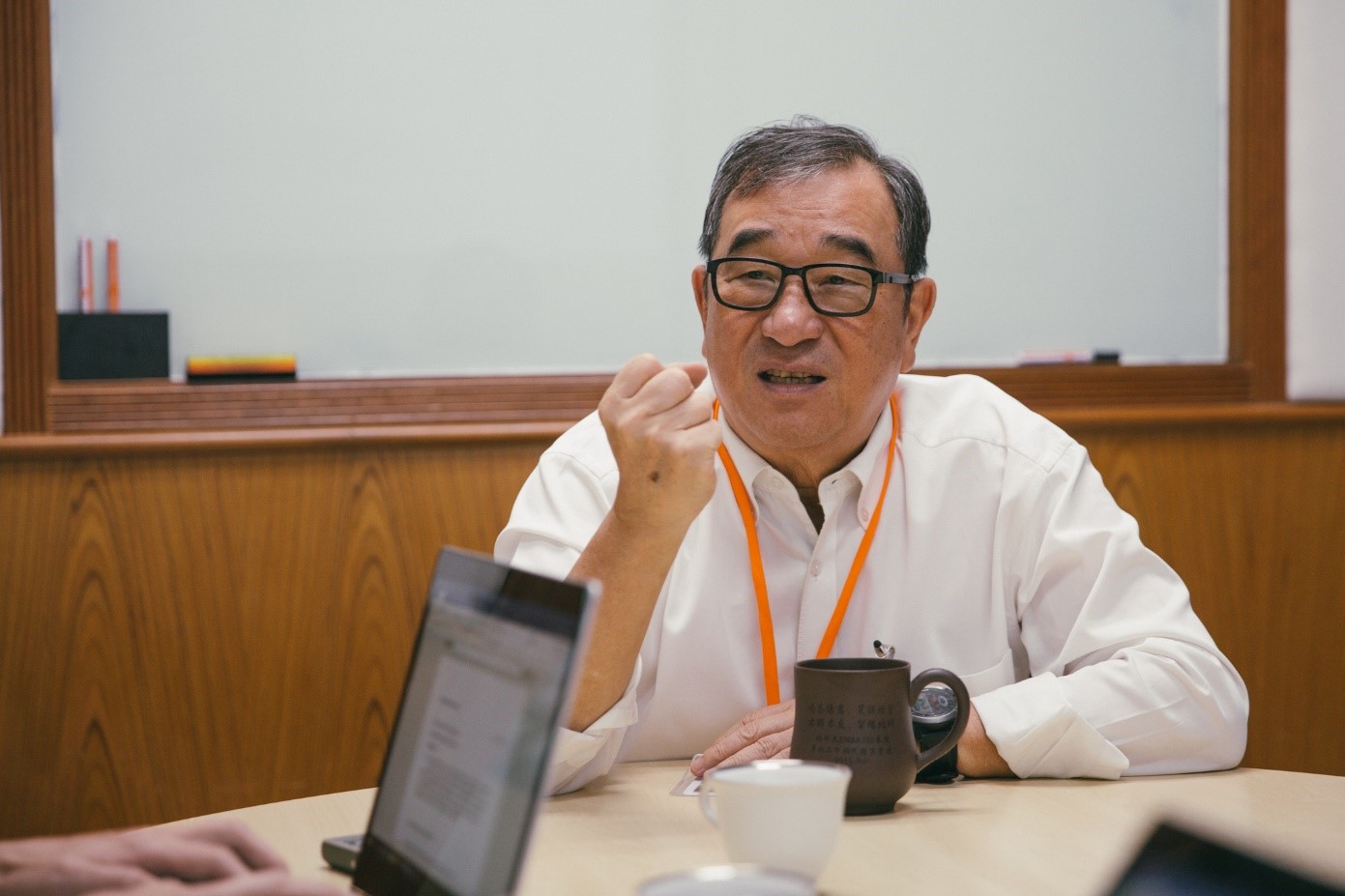 Interview of Mr. Hsieh Shen-yen, President of Delta in Southeast Asia, India and Australia
Interview of Mr. Hsieh Shen-yen, President of Delta in Southeast Asia, India and Australia
Translation and text by David Nakayama, DET Corp Comms
Samutprakarn, Thailand, November 19, 2019- In almost six years since taking the helm as DET president, “Dick” Hsieh Shen-yen steered the company through a period of expansion and business growth from our Thailand base to India, SEA and ANZ. This year, seismic global supply chain shifts and DET’s inclusion into the Delta Group presents opportunities for our regions to reap benefits from his bold vision and shine as a bright star in the Delta universe.
At the DET HQ or in conference calls, it’s impossible to escape the booming voice of the 68-year-old president as he asks pointed questions, gives sound bite directives and cracks jokes with equal vigor. Recently, I had the opportunity to gain exclusive insights and discover another side to our energetic boss. Over cups of Oolong tea, he spoke candidly, in his native language Mandarin, about his path to leadership, key takeaways from his time at DET and personal views on life.
Can you share with us about your background and how your earlier life shaped you for your present role?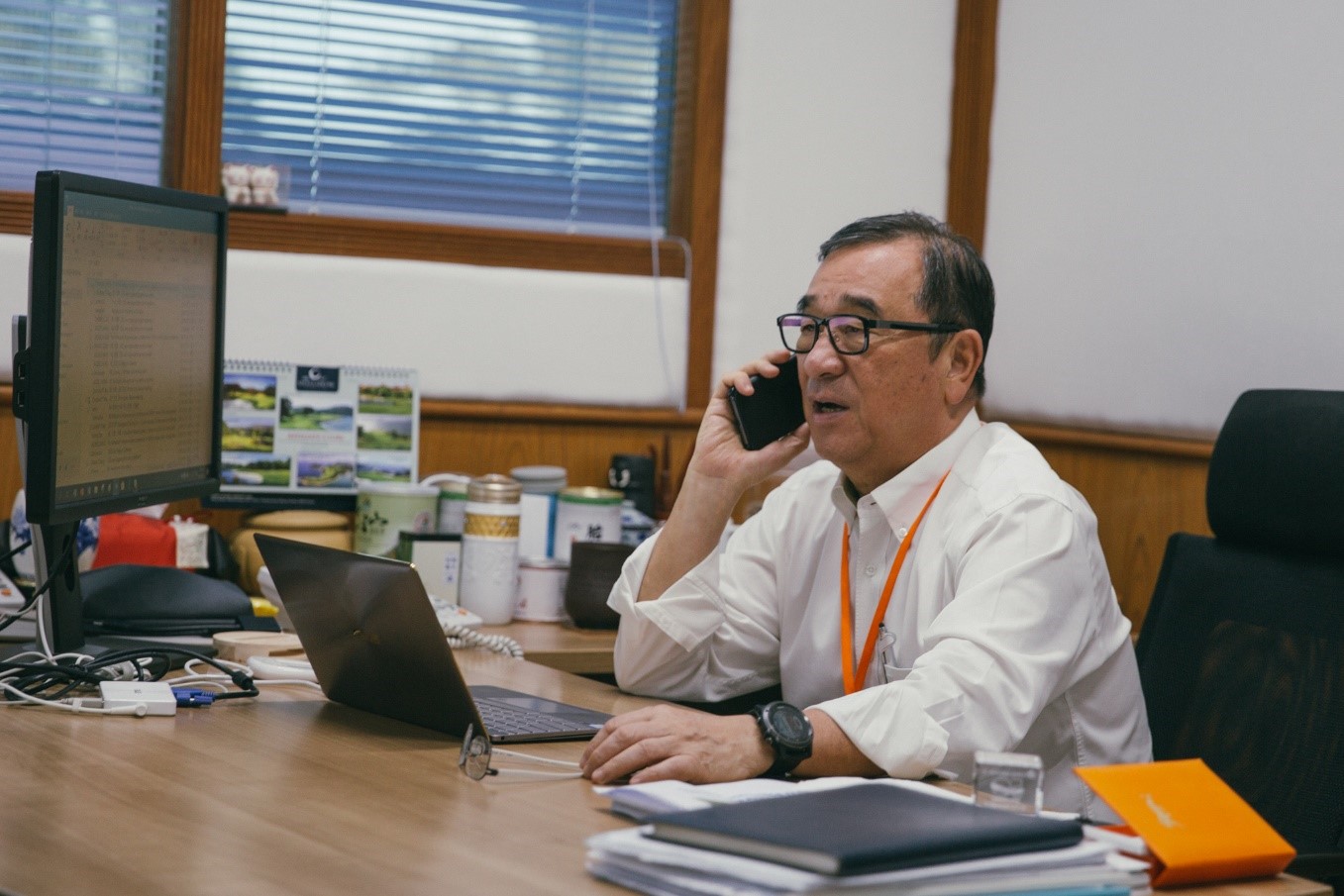 You know, the role of DET president is both interesting and challenging. Many people don’t know this, but my family wasn’t wealthy and so I worked in college. At 15 years old, I’d get up at 6:40 AM to catch the bus to school and by 3:30 PM when classes were over I’d rush to work at the post office until 11:00 PM. I remember being so exhausted that I’d fall asleep as soon as I sat down anywhere. Although it was tough, I didn’t feel it was too hard because I was happy to work towards my own life goals.
You know, the role of DET president is both interesting and challenging. Many people don’t know this, but my family wasn’t wealthy and so I worked in college. At 15 years old, I’d get up at 6:40 AM to catch the bus to school and by 3:30 PM when classes were over I’d rush to work at the post office until 11:00 PM. I remember being so exhausted that I’d fall asleep as soon as I sat down anywhere. Although it was tough, I didn’t feel it was too hard because I was happy to work towards my own life goals.
At 21 years old, I was an apprentice on board a ship to Boston. Every morning at 6:00 AM I’d clean two bathrooms for everyone. It wasn’t an enjoyable task, but it had to get done. In winter, it would drop to zero or minus five degrees Celsius. Waves would spray over the decks and the seawater would freeze my boots to my legs. The work was dangerous and difficult. I’d have to climb the mast in rough seas with a bucket of paint and a hammer to do repairs.
Why did you choose to work at sea?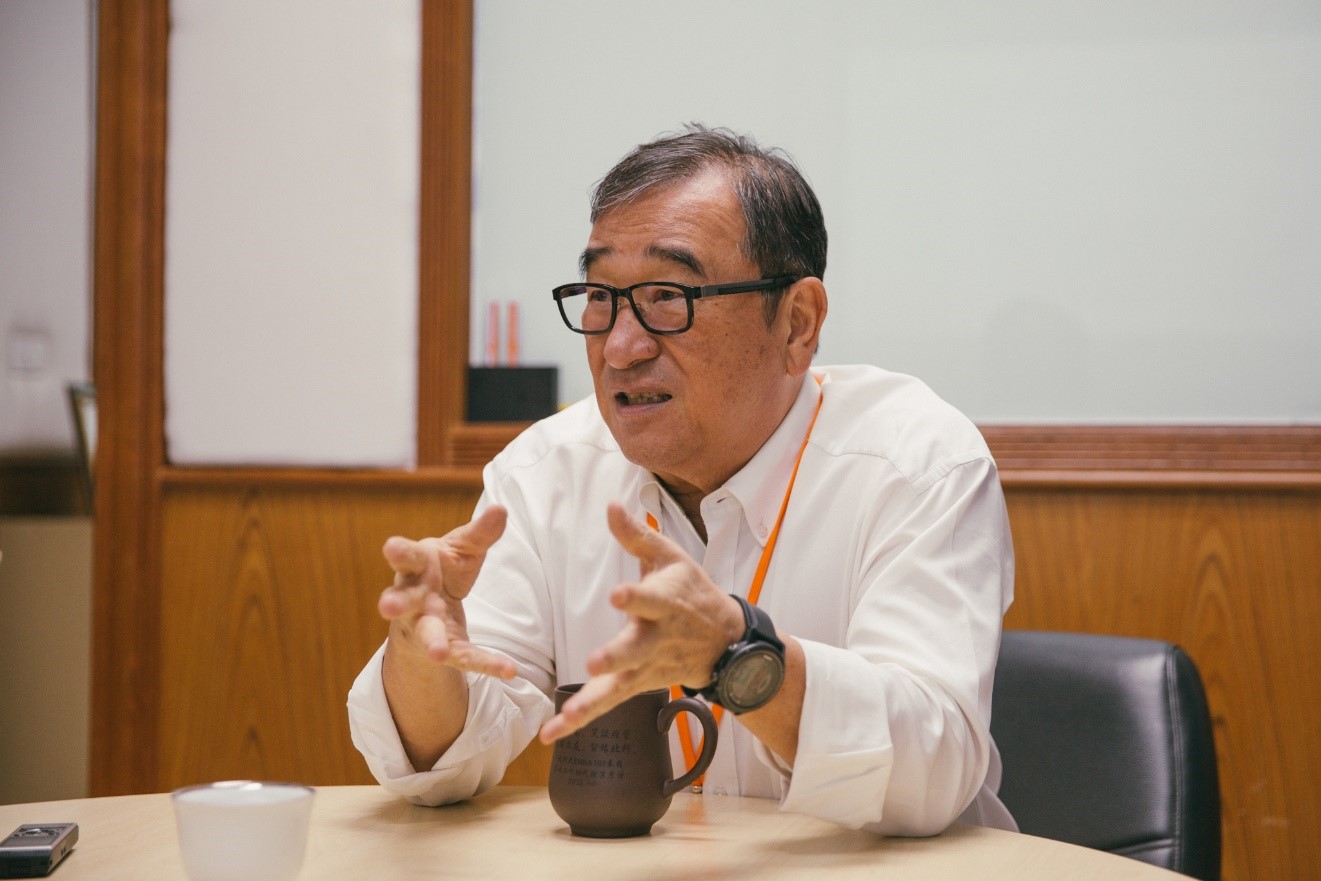 In 1973, Taiwanese were satisfied if they just got enough to eat. I thought of becoming a government worker. But after three years of high school and four years of university, I’d only expect a salary of 1,200 New Taiwan Dollars (NT). So I entered the China Maritime College instead to take a four-year course in navigation.
In 1973, Taiwanese were satisfied if they just got enough to eat. I thought of becoming a government worker. But after three years of high school and four years of university, I’d only expect a salary of 1,200 New Taiwan Dollars (NT). So I entered the China Maritime College instead to take a four-year course in navigation.
When I graduated, my apprentice salary in US dollars was more than what my father earned as a professor of 30 years. During my two-year military service, I got licensed as a third mate. Then, after two years as a third mate, I transferred to a super tanker and became a second mate. The second mate acts like the ship’s driver. No matter what, I always had to be on duty because the safety of the entire vessel was on my shoulders. But although it was a good salary and career, I couldn’t take the constant seasickness and quit in 1977.
What were your early days at Delta like?
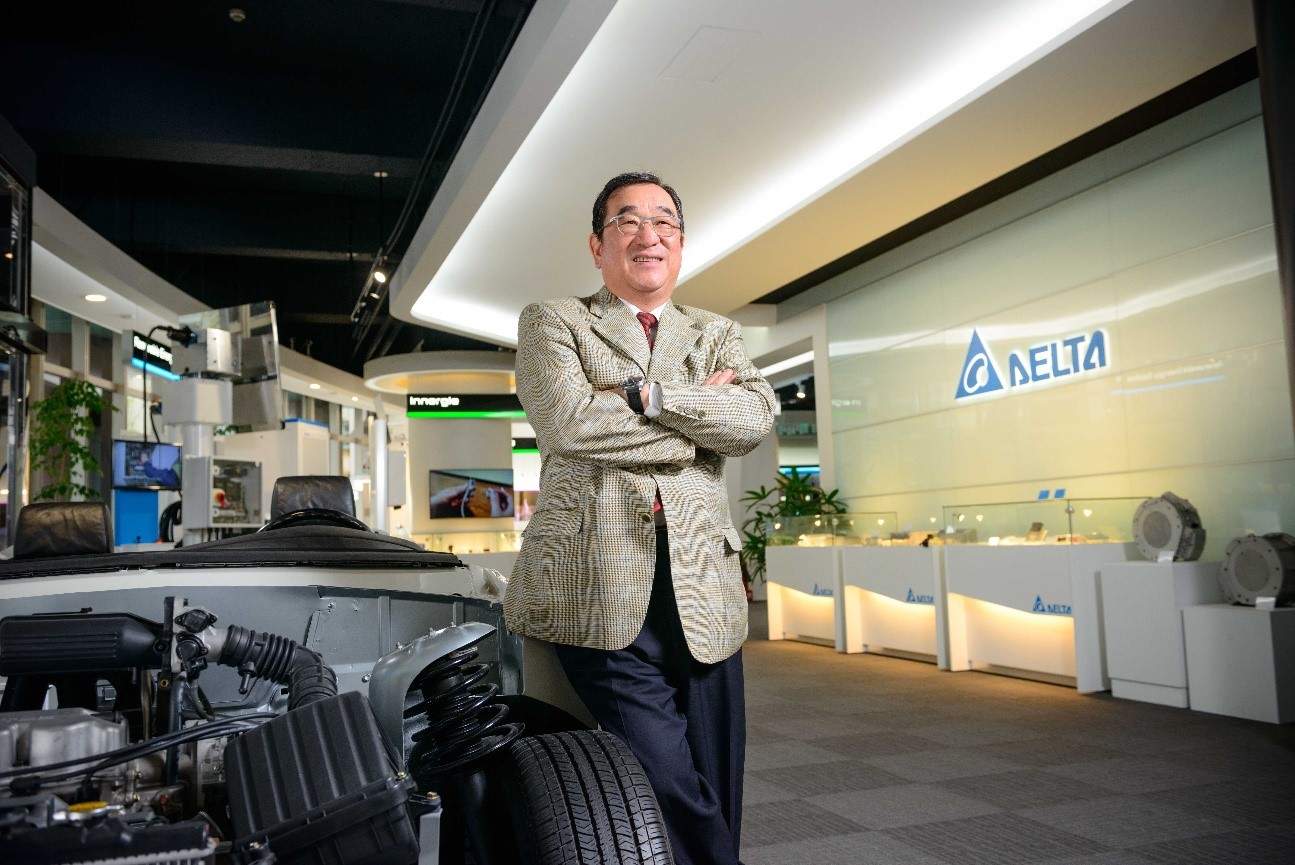 When I joined Delta I started in manufacturing, making only one-tenth of my former ship officer’s salary. I worked on the production line for around 7-8 months and then moved to sales. We sold the components used in black and white and color television sets to companies like Philips, Zenith and RCA and also worked with Sony and Tatung. I had to learn everything about sales and our products from scratch.
When I joined Delta I started in manufacturing, making only one-tenth of my former ship officer’s salary. I worked on the production line for around 7-8 months and then moved to sales. We sold the components used in black and white and color television sets to companies like Philips, Zenith and RCA and also worked with Sony and Tatung. I had to learn everything about sales and our products from scratch.
Back then, we made terminal power supplies that integrated with our digital products and components like EMI filters made in Tashi, Taiwan. In those days, large-sale mainframe computers with terminals were popular but soon yearly demand for PCs and notebooks began growing rapidly and Taiwan’s industrial sector grew well for 25-30 years supported by key manufacturers.
Things were great from 1985 to 2005. We had plenty of work and all my customers were around our Taoyuan factory or in Hsinchu nearby. I could get anywhere by motorcycle in half an hour to deliver products, do sales, find buyers, or offer technical service. After that, I moved to the Chung Li factory to work in purchasing for two years. But purchasing wasn’t my strong suit so I went back to administration where I met James Ng and Stronger Wang.
What was your first time in Thailand like?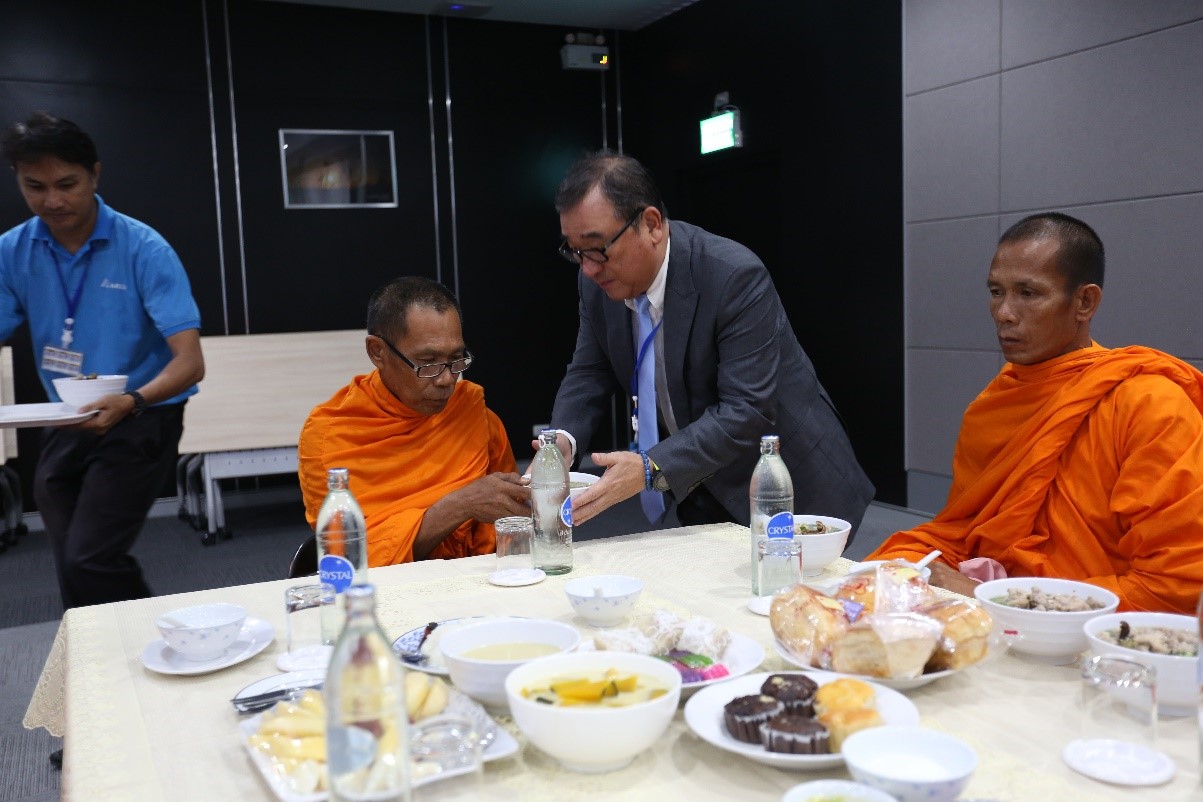 Back then no one wanted to leave Taiwan to work abroad but Andrew Lee, my boss at the time, convinced me to go. So on July 18, 1991, I joined Delta Thailand. It was tough at first because I didn’t speak much English so I had to pick it up on the job. My children didn’t even know the alphabet when they entered an international school. My daughter was in primary school in fourth grade and my son was in second grade so we decided to wait until they entered university before moving again.
Back then no one wanted to leave Taiwan to work abroad but Andrew Lee, my boss at the time, convinced me to go. So on July 18, 1991, I joined Delta Thailand. It was tough at first because I didn’t speak much English so I had to pick it up on the job. My children didn’t even know the alphabet when they entered an international school. My daughter was in primary school in fourth grade and my son was in second grade so we decided to wait until they entered university before moving again.
In 2003, we moved to Dongguan, China then in 2011 to DGC in Shanghai for two years before I returned as DET president. I think I changed a lot since my first posting to Thailand. My personality didn’t change much, but through study, I changed my working style. I look back at all those experiences as a real plus for me. Including the weekends playing golf. Nowadays I go jogging instead and spend more time with my family. So my family life is getting better.
Who are the most memorable people you worked with at DET?
I’d have to say my former boss James Ng stands out. First, James has a very broad skill-set and strong engineering background so I’d never hope to match his technical knowledge. Second, although he studied electrical engineering he was also great at managing all the company’s financial aspects.
The reason he was so effective was because he presented a big picture that wasn’t just from himself but from everyone. He got me to think about how to work better with others. Now I see a leader doesn’t just say “Yes” or “No”, they offer directions. But if you give too many directions, no one knows where to go so you need to narrow it down to one or two directions then we can go ahead learning by trial and error.
The second biggest influence on me was Stronger Wang. He’s very hardworking and did a lot for manufacturing here. Like James, he’s very faithful to carry out orders from superiors. I admire how Stronger always did everything to fulfill his boss’s mission.
What were the biggest challenges that you overcame at DET?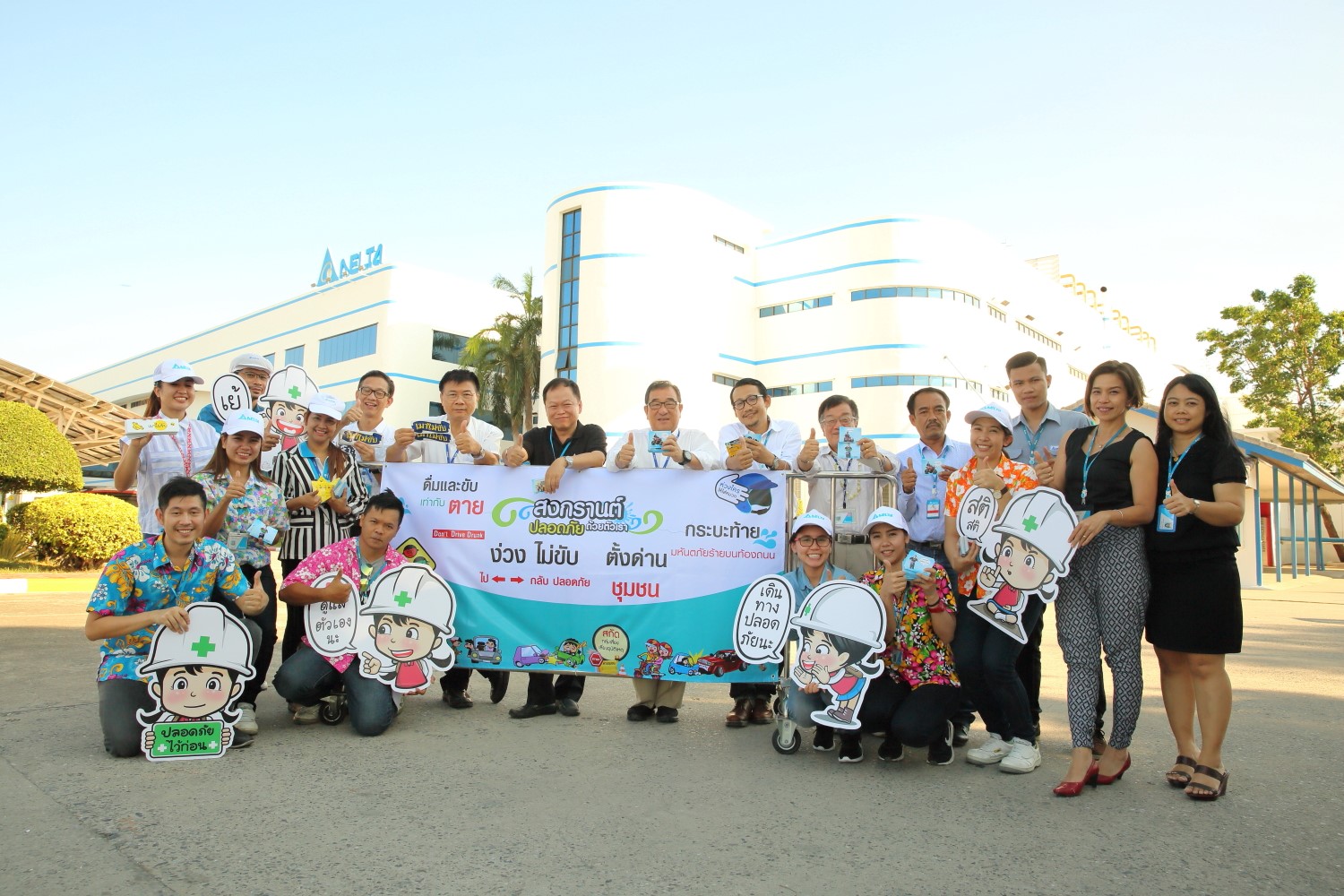 The biggest challenge was going from leading one department one day to leading a whole company the next. I have to answer to my bosses while convincing a workforce of over 10,000 to follow me at the same time. Some have the same concept of how to work and others don’t. So how do we manage everyone’s expectations and work together as an organization?
The biggest challenge was going from leading one department one day to leading a whole company the next. I have to answer to my bosses while convincing a workforce of over 10,000 to follow me at the same time. Some have the same concept of how to work and others don’t. So how do we manage everyone’s expectations and work together as an organization?
For example, I wanted to set up an automation company. We didn’t have the skilled manpower, so we got an external company with specialized products to complement our automation products as a total solution. Unfortunately, this project failed because it proved impossible to merge as one offering. Still, I personally believe that automation will ultimately succeed as a business here.
What do you think your greatest success at DET is?
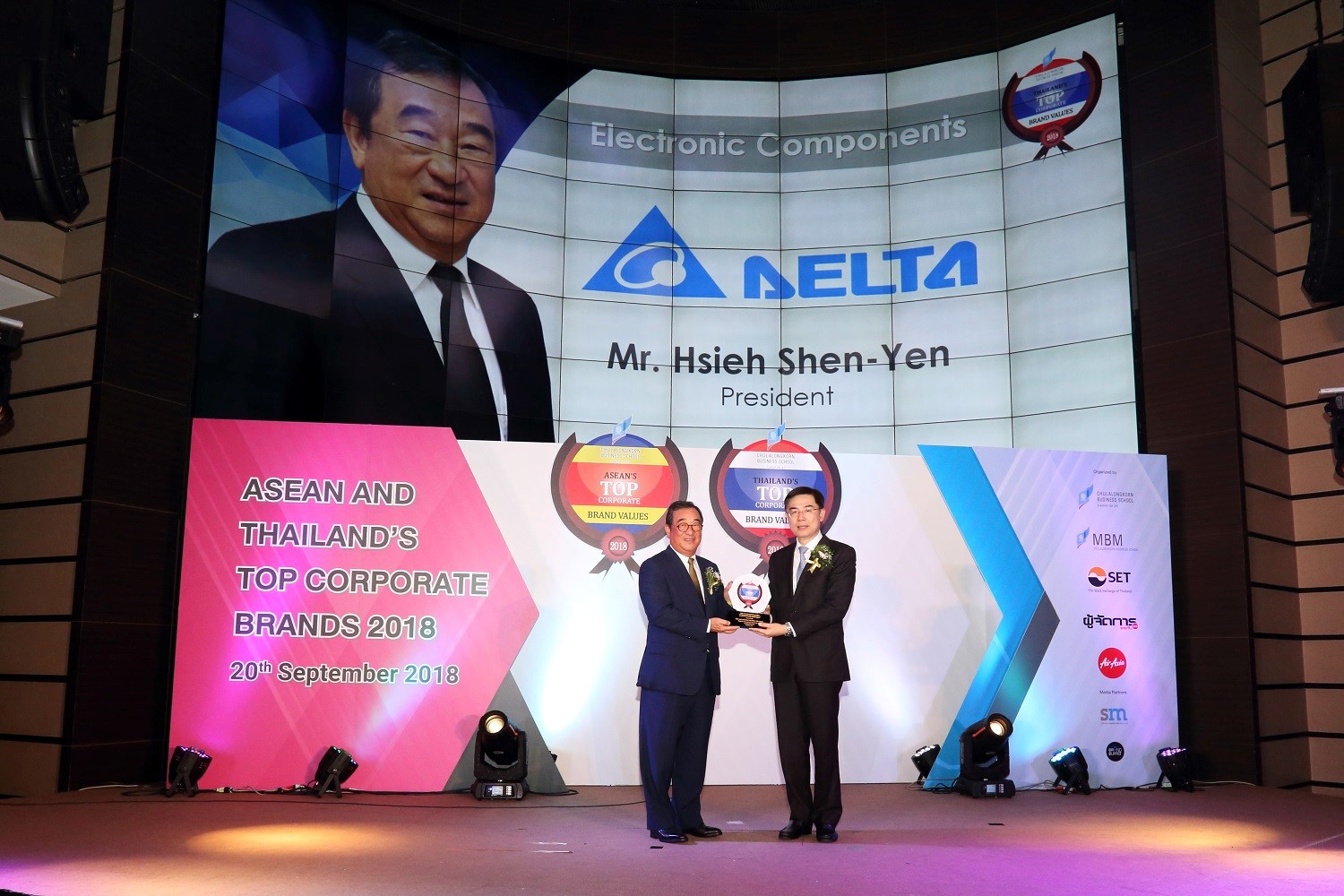 During the past six years, I’ve been able to bring our team together to improve the entire company’s growth, processes and corporate culture. We all work well together and can get on a single track to reach our goals. I also feel I’ve been able to help globalize our company. I’ve learned a lot more about macro planning through these long-term projects. Since becoming president I began thinking, “Hey, I need to grasp the big picture to lead our company in a positive direction”.
During the past six years, I’ve been able to bring our team together to improve the entire company’s growth, processes and corporate culture. We all work well together and can get on a single track to reach our goals. I also feel I’ve been able to help globalize our company. I’ve learned a lot more about macro planning through these long-term projects. Since becoming president I began thinking, “Hey, I need to grasp the big picture to lead our company in a positive direction”.
Looking back, I feel I’ve done quite a lot to contribute to this country since returning. Whether it’s our university programs or environmental activities, my contribution isn’t small. If we’d used the same methods as before we wouldn’t have been able to come this far. So it took some guts to do all this. If we didn’t do any educational programs or marketing drives, which are fundamental investments to build our reputation, then we’d still be unknown or just a regular Thailand-listed company.
Finally, is there anything you would like to share with our employees?
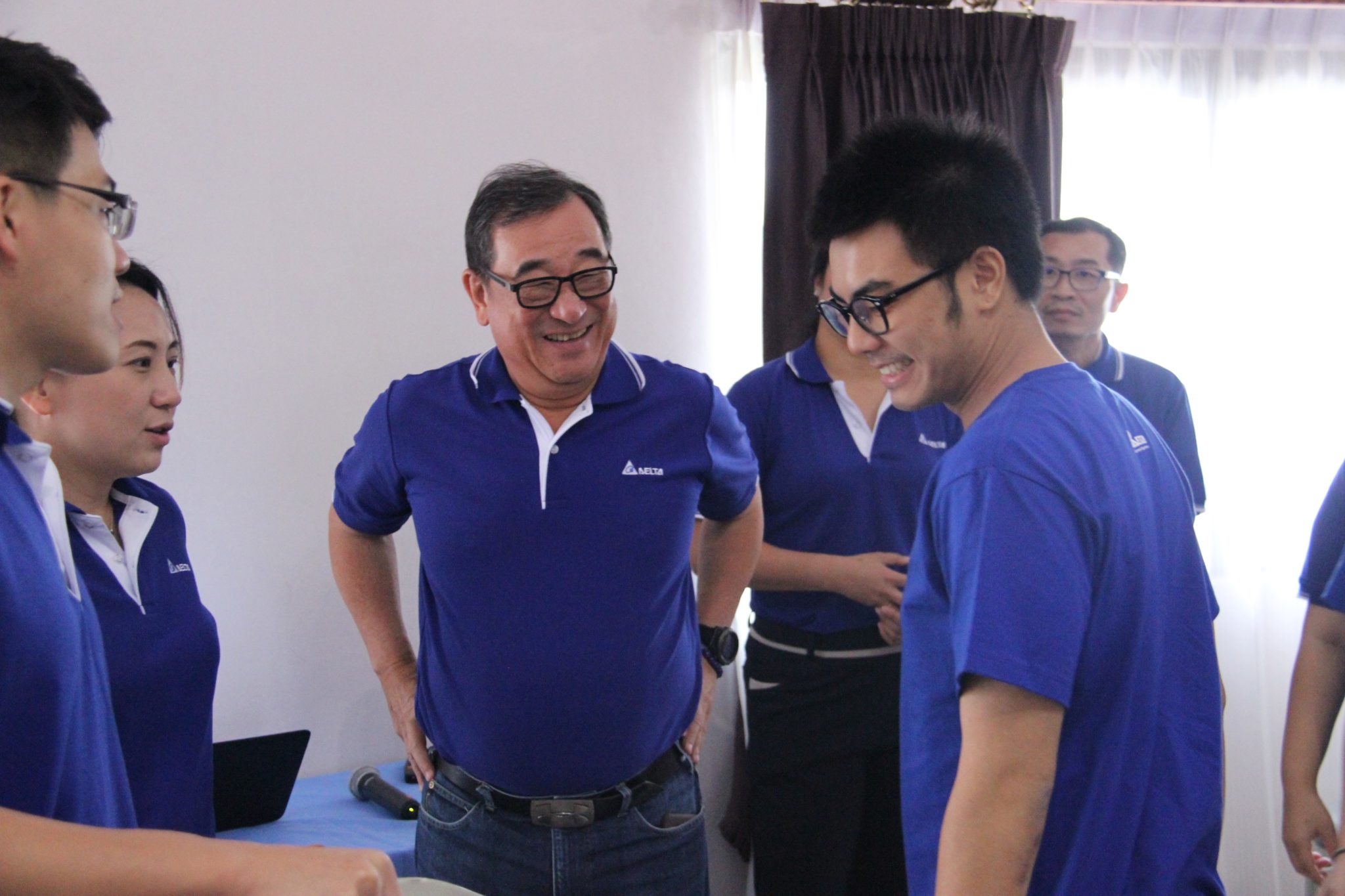 I’ll say this: Live the life that you should be living today! Think carefully. What kind of life do you want today? What kind of life do you want tomorrow? When I say tomorrow, I mean in the future. Think about your future and plan for it. And I don’t just mean your work, I’m talking about your personal lives.
I’ll say this: Live the life that you should be living today! Think carefully. What kind of life do you want today? What kind of life do you want tomorrow? When I say tomorrow, I mean in the future. Think about your future and plan for it. And I don’t just mean your work, I’m talking about your personal lives.
For example, you can ask yourself: What do I want for my family? How many children do we want? Where will they go to school? What will they become? Just don’t plan too far ahead. Five years is enough. If you plan for 20 years there will be too many changes that no one can foresee and even one event can upset everything. So be open to change.
